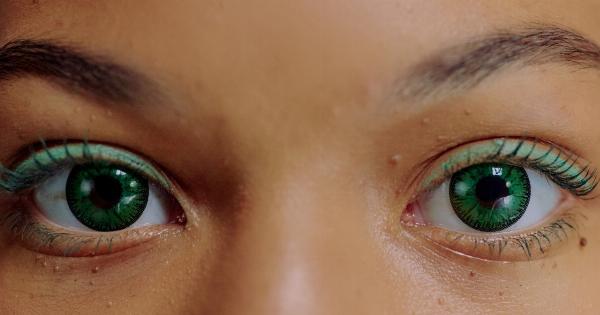According to a recent study, contact lens wearers may be at a higher risk of vision loss as compared to those who don’t wear them.
The research, conducted by a team of experts from the renowned Vision Research Institute, sheds light on a concerning trend that has caught the attention of ophthalmologists worldwide.
The Impact of Contact Lenses on Vision
While contact lenses have proven to be a popular choice for vision correction, this new research highlights potential risks associated with their use.
The study reveals that long-term contact lens wear can increase the chances of developing serious eye conditions that could lead to permanent vision loss.
One of the significant findings of the research is that contact lenses restrict the flow of oxygen to the cornea, the clear front surface of the eye.
This reduced oxygen supply can weaken the cornea over time, making it more susceptible to infections and other complications. Additionally, the study suggests that the excessive wear and improper cleaning of contact lenses can introduce harmful bacteria directly to the eye, further increasing the risk of eye infections.
Increased Risk of Infections
Eye infections are a common concern for contact lens wearers, and this new research indicates that the risk may be even greater than previously believed.
The study found that contact lens wearers have a higher likelihood of contracting infections such as keratitis, a painful inflammation of the cornea. Severe cases of keratitis can cause scarring, leading to permanent vision impairment.
Furthermore, improper hygiene practices, including wearing lenses overnight or using them beyond their recommended lifespan, significantly contribute to the increased infection risk.
Many users may also overlook the importance of regularly replacing lens cases, which can become breeding grounds for harmful bacteria if not cleaned properly.
Awareness and Education on Contact Lens Safety
The findings of this research stress the importance of raising awareness and promoting education on proper contact lens safety.
Ophthalmologists and eye care professionals play a crucial role in ensuring contact lens users understand the potential risks and are informed about the necessary precautions to minimize them.
It is recommended that contact lens wearers follow strict hygiene practices, including the regular cleaning and disinfection of lenses as per the manufacturer’s instructions.
Avoiding the use of tap water to clean lenses or lens cases is also vital, as it may contain harmful microorganisms that can cause infections. It’s essential to replace lenses and cases at the recommended intervals and avoid wearing them while swimming or in potentially contaminated environments.
Seeking Professional Advice
If individuals experience any discomfort, redness, or changes in vision while wearing contact lenses, it is crucial to seek professional advice promptly.
Ignoring such symptoms can lead to the development of more severe complications and increase the likelihood of long-term vision loss.
Ophthalmologists strongly recommend regular eye examinations for contact lens wearers, as these can detect early signs of potential issues.
These comprehensive eye exams are essential for evaluating the health of the cornea and detecting any underlying conditions that may arise from contact lens wear.
The Role of Advanced Vision Care Technologies
Advancements in vision care technologies have led to the development of contact lenses that are more breathable and better suited for long-term wear.
Silicon hydrogel lenses, for example, allow for greater oxygen permeability, thereby reducing the associated risks to the cornea.
Additionally, daily disposable lenses offer a more hygienic option for contact lens wearers, as they eliminate the need for lens cleaning and disinfection. By using fresh lenses each day, the risk of bacterial contamination is significantly reduced.
Educating Contact Lens Users
Given the potential risks outlined by this latest research, it is crucial for existing contact lens wearers and those considering contact lenses to be fully aware of the associated hazards.
Eye care practitioners should utilize this research to educate their patients about proper lens care and the importance of adhering to hygiene guidelines.
By ensuring contact lens wearers are well-informed, the risk of vision loss and related complications can be minimized.
The Future of Contact Lens Safety
While this research highlights the concerning risks of long-term contact lens wear, it also serves as a catalyst for further advancements in contact lens technology and safety practices.
Developing lenses that provide optimal oxygen flow, resist bacterial contamination, and are easier to maintain will be crucial in reducing the risk of vision loss in contact lens wearers.
As with any medical device, understanding the potential risks and taking appropriate precautions is essential.
By staying informed, following proper hygiene practices, and seeking professional advice when needed, contact lens wearers can continue to enjoy clear vision while minimizing the risk of vision loss.





























